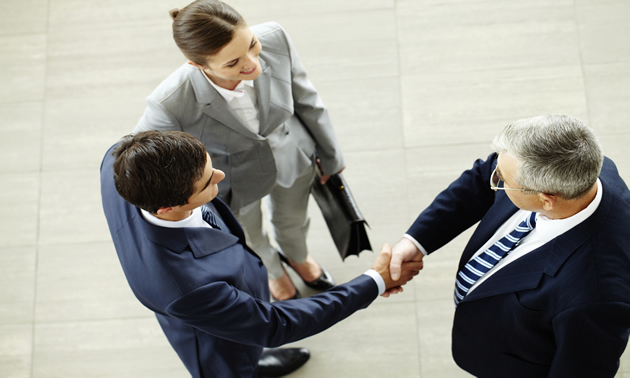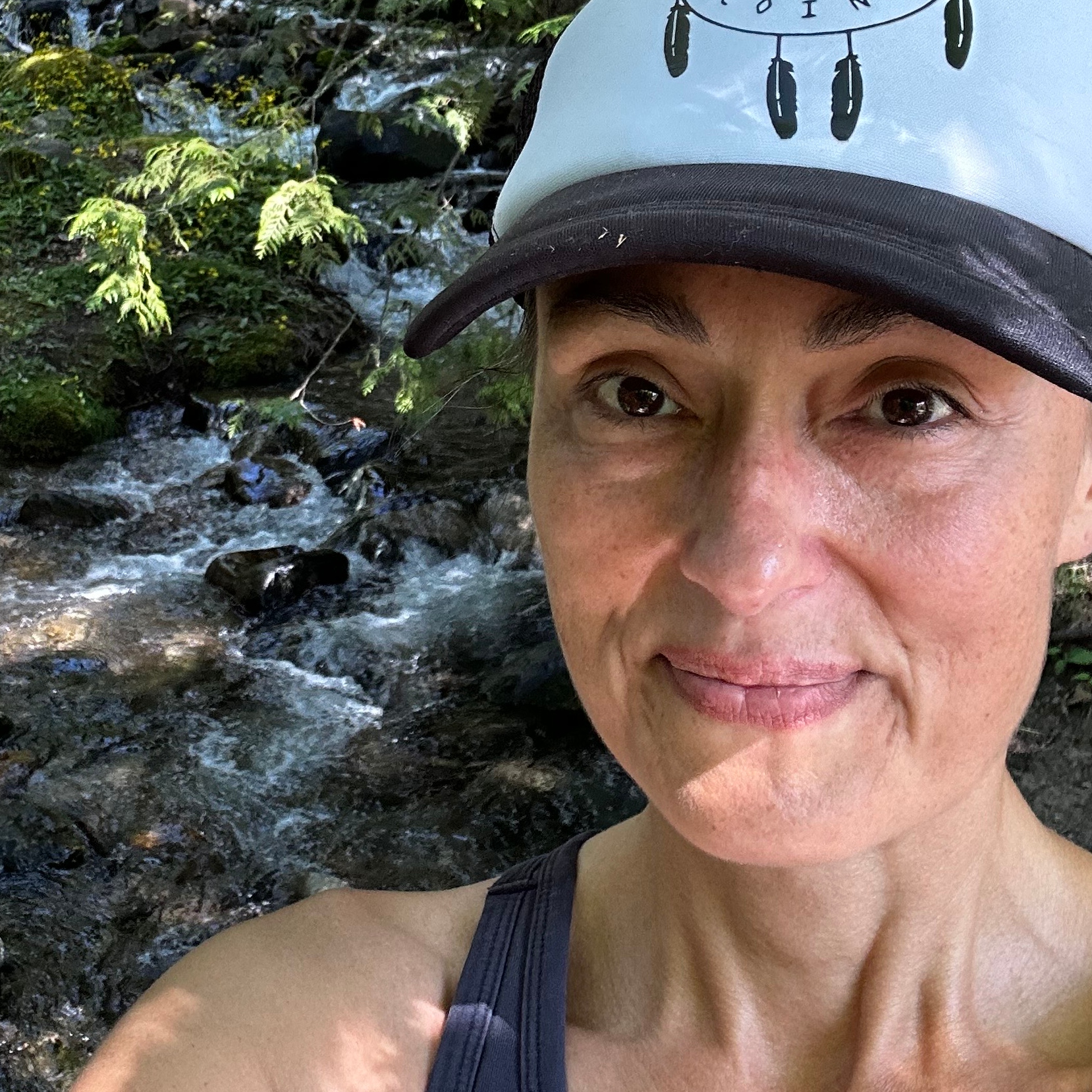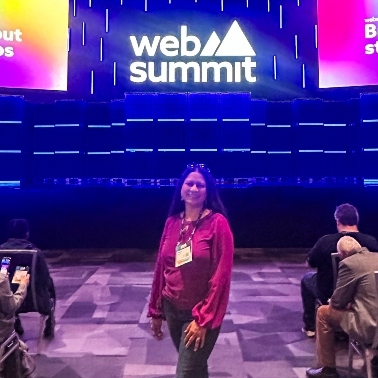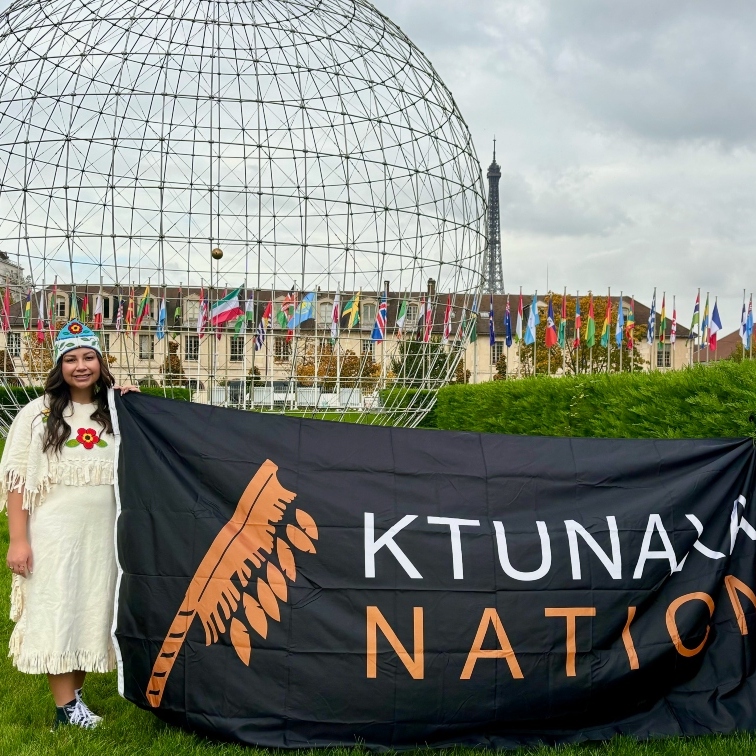Tips for conference attendees
How conference attendees can bring value back to their organizations

Breaks between sessions at a conference are a valuable time to meet and talk with other attendees. — Shironosov/iStock/Thinkstock photo
Attending conferences or trade shows takes time and money for business people. These days, it’s harder for folks to justify attending conferences. Realize that you are an asset to your company, and you need maintenance and enhancements just like a piece of machinery.
Denine Milner is the strategic initiatives co-ordinator for lands and resources with the Ktunaxa Nation; she has years of experience organizing and attending conferences and workshops.
With planning, she said that attendees can bring back value to their organization.
Here are some tips from Milner and other sources to make attending a conference worthwhile for you and your business.
Before the conference
“Be clear on why you are going and what you want out of the conference,” advised Milner. “Identify what you specifically want to learn. Often when we have clearly stated objectives or questions we want answers to, it can focus our time and energy while at the conference.”
Milner suggested this approach: “I want to leave with X number of business cards and at least three people to follow up with on such-and-such an issue.”
To accomplish your objectives, use the conference planner or agenda to plan your personal itinerary. Have more than one session in mind for each time slot. If the room is overflowing when you arrive or the topic is not what you thought it would be, you can quickly head to your second choice. Plan to attend a few sessions outside your area or specialty.
Look at the exhibitor list ahead of time and mark the booth numbers of those you want to visit. You can spend your remaining time walking the entire hall.
Logistics
Arrive early and map out your way around the hotel and conference location.
Wear a name tag that includes your name, employer and Twitter ID (write it in if it’s not on the name tag you are given). It’s easier to meet new people if you provide them with easy access to your information.
“Plan health breaks for yourself,” said Milner. “It’s easy to sit and eat for three days, but our productivity and alertness decrease in direct proportion to our level of sedentariness.”
So take a walk around the hotel or conference centre and get some fresh air. Also, stay hydrated, eat a healthy breakfast and get a good night’s sleep.
Leave your work behind as much as possible; turn off your electronic gadgets and be fully present to maximize the benefits of the conference.
At the sessions
“Arriving early to the sessions is a good way to meet people and network with others that you are sharing a table with or sitting next to,” Milner said.
Don’t sit with friends and co-workers. Sit down and meet someone new on either side of you as you never know where this will lead.
While you are taking notes during a session, highlight with a star the action steps that you want to take once you get back to work.
Approach the speakers after their presentations. They are looking for interesting conversations as much as you are. If you enjoyed their talk, let them know. If they are engaged in conversation with someone else, wait your turn.
“Again, often arriving early may earn you a better and quieter opportunity to talk with presenters,” said Milner.
Given that conferences can be stimulus overload, after each session write down one take-away idea that is worth remembering.
Make the time work best for you—you can break away from the herd and skip a session if you’re having a great conversation.
Leverage the breaks
Many seasoned conference attendees will tell you that the breaks between sessions have as much or more value as the sessions themselves. This is when people have time to meet, talk and exchange ideas and business cards.
Enjoy the social events for the same reasons, and strike up conversations with new people. That chance conversation could make all the difference, but don’t leave these casual meetings up to chance.
“For the adventurous type, you could raise your hand at the end of a session and say, ‘For anyone wanting to talk more about this, I am having dinner at (name restaurant and time) and my name is XXX,’ “ Milner said.
Getting to know co-workers better is certainly a worthwhile goal at a conference but you still want to meet new people. One suggestion is to require that each co-worker comes to dinner with someone he or she met at the conference.
Those business cards
Most conversations among conference attendees end with an exchange of business cards. One great tip is to collect them into two groups. The first group consists of those people whom you absolutely want to follow up with for a specific reason. When you receive a card from such a person, jot your intended action on the card.
The second group of business cards come from those people you just want to add to your address book.
After the conference
“Look for ways to ‘pay your experience forward’ and increase the value of the conference by extending the net of your learning,” said Milner.
“Host a brown-bag lunch with colleagues to share the information and bring back as many copies of conference materials that you can to circulate,” said Milner.
“Prepare a summary of your experience and provide it to those who approved your application to go as well as colleagues,” said Milner. She also suggested passing out copies of business cards that you collected to colleagues.
Review your notes and transfer those starred action steps into a task management tool. Follow up on your stack of business cards too.
In the end, conferences are what you make of them. Executing these tips will more than justify the time and money spent on attending them.






Comments